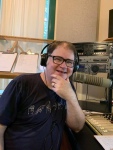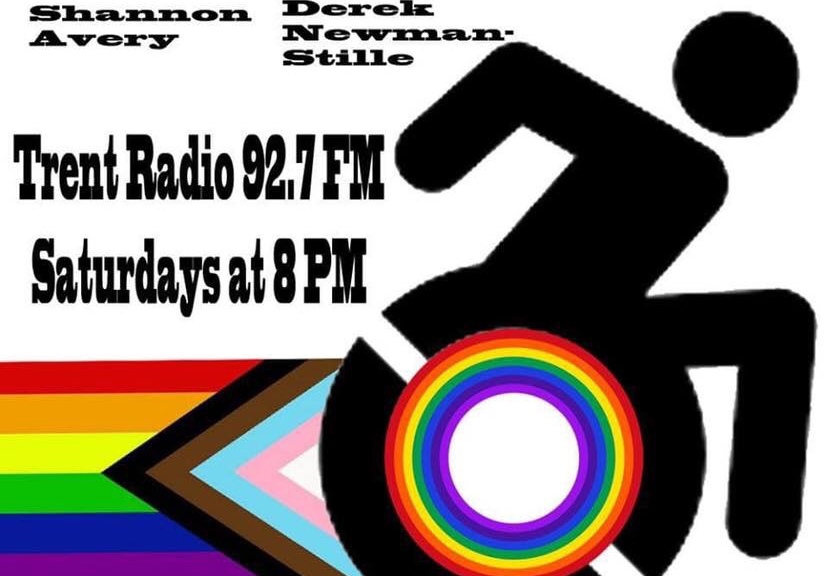“Truths”, Fantasies, And The Stories We Are Told About Ourselves
By Derek Newman-Stille
We disabled people are asked to tell our stories over and over again. We are asked to narrate our bodies and the difference of our bodies again and again. When we meet with doctors we have to tell the stories of our bodies (and often have to retell them until they fit the medical model that doctors need to understand our bodies). The same happens when we meet specialists. We need to narrate our bodies to employers to get accommodations, to schools to get access to resources, to funding agencies, to government officials when we need additional supports, and, yes, even to strangers on the street.
I recently had someone follow me down the street for multiple blocks asking me what was “wrong” with my body, asking me to tell him the story of my body. This was happening despite the fact that I was having a conversation with my friends that this guy was interrupting. He believed his own demand to hear the story of my body overrode the conversations I was already having. I told him that I didn’t want to tell the story of my body to a stranger, and like most people who I tell this to, he became enraged, told me that I was rude and that he was just curious, and then he said “besides, I am a PSW, so I am an expert on people like you.”
This is not a unique experience. It happens regularly. I am frequently bombarded with questions about my body by strangers, and many of those strangers (who have no disabilities of their own) then believe themselves to be experts on my body and tell me that I don’t really need to use my rollator or my cane, that I can cure my disability with crystals or yoga or positive thinking or walks in the woods or “blu-ray healing”. The narratives people place on my body abound and they come from a society that tells able-bodied people that disabilities are the purview of the public, that our stories are open to their interpretations and their adaptations.
Often the stories of our bodies preclude us even being part of them. Frequently, when our bodies are written about by “specialists”, their stories of our bodies continue on without our own narration, telling stories about us. This seems like it should be something unusual, to have our stories told by other people, but we need those stories told by people who are “specialists” on our bodies in order to get access to many of the accommodations we need. Our stories become papered entities – accommodation letters to professors, medical notes, specialist reports. Our stories are told and retold and we are not considered experts on our own stories. In fact, we are considered inherently biased and our stories are rendered as problematic, fictitious, and yes, even fantastic.
This rendering of our own stories as fictional extends into publishing about disabled bodies, where, frequently, our actual stories about our disabled bodies – told from our own experiences – are considered less authentic than stories told about disabled people by able-bodied others. Like many disabled authors, I have been told that my factual rendering of my disability’s story is not believable, that it doesn’t match with what audiences want or believe, or that it doesn’t ‘ring true’ for a disabled narrative. Publishers and editors are much more interested in the papered story about disability, the one constructed through things they have read before – the story full of tropes about disability. This isn’t surprising (even though it should be) because disabled stories are often inauthenticated, are often rendered as less worthwhile than the people who claim to be experts on our bodies. We are accustomed to this. We get it from doctors, politicians, and others who consider themselves to be experts who render our stories for others, who erase the personal in order to create a fantasy about disability.
So, with all of the fantasies already created about disability, the fictions that are constructed around our bodies because these fictions are considered more realistic than our own tales, are there possibilities for us to reshape those fantasies? Can we assert our own tales through the unbelievable, the magical, the imaginative, and use these stories to reshape the way that our bodies are treated as fantasies?
There is a huge potential in fantasy for operating on the level of imagination, for operating in the realm of the un-real. We disabled people have so often been told that our stories need to be retold by specialists in order for them to be considered real that there is a liberation in telling a story that we don’t have to be x-rayed, MRIed, assessed, and narrated before it can be considered true.
Abled people are constantly believing things about disability because they have been told that imaginations about disability are “true”, so there is a power in challenging thoughts about disability at the imaginative level, at the level of possibility, and therefore to introduce new possibilities for thinking about disability, for imagining us.
Although I have heard from fellow disabled people that what we need is real change, often we forget about the power of imagination as an agent of change. We create change by imagining new possibilities, by thinking up new alternatives, and by challenging what we think of as “truths” because frequently when something is portrayed as “truth”, it is stagnated, constructed as unchanging and unchallengeable. Fantasy stories about disability open up disability itself to imagination, let disability as a subject be something that is fluid, changeable, reimaginable, and adaptable.
As disabled people, we already live in a world of fantasy. We live in a world that pretends that we are invisible, in a world where words – when wielded by policy-makers – can magically take away everything we need.
We have the power to use those fantasies to remake our world, to reforge it as one that includes us, and, not only that, but represents us, and even, dare I say, celebrates us?





